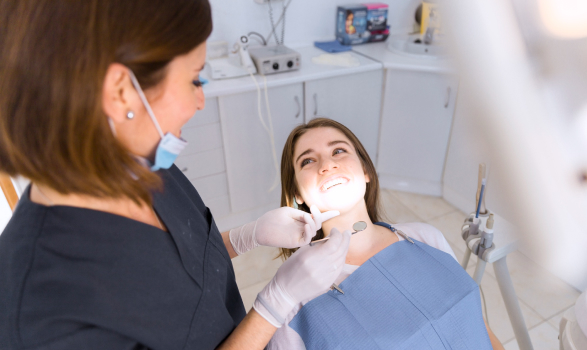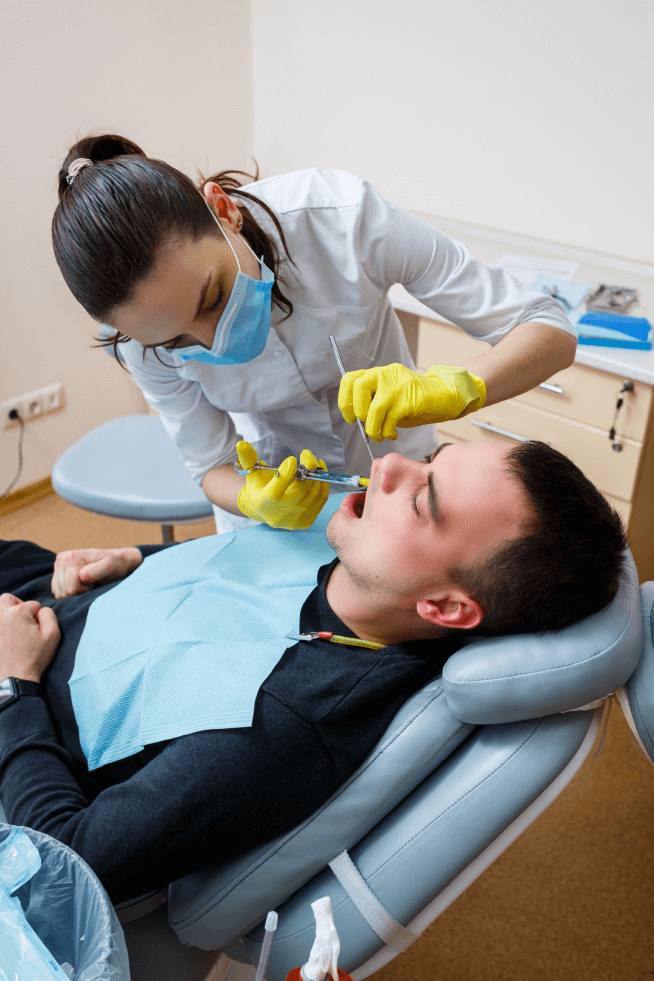Preparing for Your First Dental Appointment
If this is your first dental appointment, you might feel anxious, but knowing what to expect definitely reduces those feelings. Next are some recommendations on what to carry and what to anticipate at your first dental visit.


Initial Questions
After registering, you will be required to complete a medical history questionnaire upon check-in. This form includes questions regarding your past health history or the existing conditions and your family’s health history. It is imperative to know your family health history because there are many correlations between oral and systemic health. For example, complications of diabetes can cause problems in the mouth, and genetics may play a role in increasing the likelihood of developing gum disease.
Checking In
As soon as you get into the dental office, the first thing you do is go to the receptionist’s desk. They will request the identification, insurance details, and the medication list that you have brought. They may also request that you complete other forms if they deem it necessary. On arrival, you are likely to be asked to find a seat in the reception area until you are invited for a consultation with the doctor.


The Initial Check-Up: What to Expect
- Meeting Your Dentist Your examination will start with the introduction to your dentist. So, this is a good time to voice any concerns or questions that you may have. Your dentist will ensure that you are relaxed before proceeding to explain the procedures that will be conducted during the examination.
- The Examination The primary purpose of the examination is to find out if there are any problems with your mouth. First, the dentist will examine the oral cavity, focusing on the state of teeth and gums. They are likely to use a small mirror in order to have a view of all the parts in your mouth.
- X-rays and Detailed Examination To get an overall view of your dental health, your dentist may need to take some X-rays. X-rays help identify conditions that are not easily observable, such as cavities in the spaces between the teeth or conditions beneath the gums. With the help of a periodontal probe, the dentist will be able to estimate how much of the enamel is covered by the gums and check for any signs of damage or cavities.
- Preventing ProblemsThese visits help your dentist identify problems early before they develop into complicated problems. For instance, timely diagnosis and treatment of gingivitis may help avoid more serious forms of periodontitis. Similarly, it helps to detect cavities right away so as not to require complicated procedures in the future.
- Reliable Advice There is a plethora of dental information on the internet, but not all of it is accurate and reliable. That is why it would be beneficial to rely on the professional opinion of your dentist, who has gone through years of education and practice.
- X-rays and Recommendations Finally, the dentist will explain the results of the examination to you. They will advise you on the care and hygiene needed depending on the state of your teeth and gums currently. This plan could comprise a thorough dental check-up and other treatment that is often done at a later date.
Post-Appointment Care
As with any dental procedure, you may feel soreness in your gums for a couple of days following your appointment, which is especially true if you had a root cleaning. You may have tender teeth, inflamed gums, or even minute blood discharge. This discomfort can be alleviated with over-the-counter pain medications. However, these effects are expected to be mild, and you should only call the office if the pain becomes severe or if you experience any other symptoms that are deemed to be serious.
Achieve Your Dream Smile
Schedule a consultation with us today! Smiley Dental is dedicated to providing you with the best possible dental care and helping you maintain a healthy, beautiful smile.
It is widely advised that patients should visit their dentists for evaluation and cleaning at least once every six months. By making annual dental check-ups, your dentist is able to examine your oral health and identify any problems.
To keep your teeth and gums healthy, it is important to schedule regular checkups and dental cleanings. The American Dental Association (ADA) advises adult patients to visit the dentist at least once every six months. Regular dental cleanings remove stains and plaque buildup, preventing the risk of tooth decay and gum disease.
The temporomandibular joints (TMJ) connect the jaw to the skull bone. When these joints are strained, used excessively, or otherwise damaged, pain when moving the jaw or limited jaw mobility may occur. When this happens, patients are said to suffer from TMJ dysfunction or TMD.
We are happy to process and file claims for most major dental insurance providers. We are in-network with a variety of PPO benefit plans and MassHealth.
Yes. Dental decay can occur as soon as children have teeth. Dental decay progresses faster in children, so it is recommended x-rays occur on a regular basis as prescribed by the dentist.
I am text block. Click edit button to change this text. Lorem ipsum dolor sit amet, consectetur adipiscing elit. Ut elit tellus, luctus nec ullamcorper mattis, pulvinar dapibus leo.
- reduces risks of tooth decay and cavities
- Reduces the risk of gum disease
- Removes stains
- Freshens your breath
- Improves your overall health
